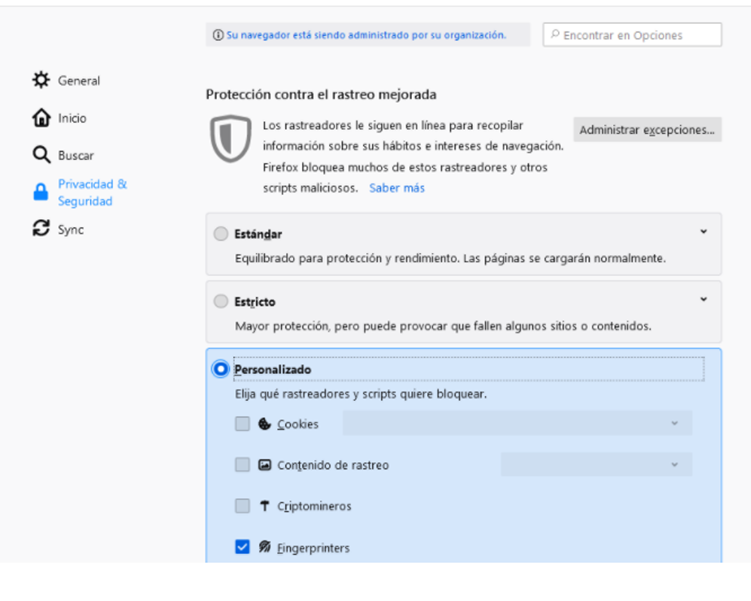Protecting user privacy is critical in a digital world where personal information is at constant risk. Users are often unaware of how their private data is being used, which can lead to security breaches, phishing, and exposure to cybercriminals.
Sensitive data can be stolen and disclosed on the deep web if adequate protection is not in place. Many platforms collect user information through various tracking methods, exposing their privacy to potential threats.
If you are concerned about your user privacy, Qondar can become the best solution. Through continuous monitoring, it crawls the Internet, the Deep Web, and the Dark Web to identify exposed personal information, alerting in real time to potential threats and vulnerabilities.
Tracking Techniques Affecting User Privacy
Various techniques are used to collect information about users and their online habits. Knowing them is the first step to protecting yourself:
- Cookies. Small text files that store information in the user’s browser and allow tracking of their online activity.
- Privacy Policies. These are documents that explain how a platform manages user data, although they are often extensive and difficult to understand.
- HTML5 elements. Browser storage systems with greater capacity than traditional cookies, allowing companies to save more data.
- IP address and geolocation. They allow the approximate location of an online user to be identified, which can be used for advertising or even malicious purposes.
- Social networks. Platforms such as Twitter, Facebook, and Instagram collect information about their users, their interactions, and preferences, sharing it in many cases with third parties.
- Google services. Tools like Google Search and YouTube track user activity to personalize the experience and collect vast personal data.
- Browser fingerprint. Some websites can identify and track users using information about their browser and device, allowing tracking without cookies.
- Supercookies and Evercookies. Advanced storage methods that are more difficult to delete than conventional cookies and can persist on the user’s system even after deleting the browsing history.
Tools to protect user privacy
Fortunately, various tools and techniques can improve user privacy and minimize the exposure of personal data on the Internet.
Private search engines
Some search engines respect user privacy and do not track your information or sell it to third parties:
- Ixquick. It does not log IP addresses or store tracking cookies, providing high anonymity.
- Startpage. It delivers Google results without collecting user information, combining privacy with a familiar search experience.
- DuckDuckGo. It does not store or share browsing data with other companies or generate user profiles.
- Qwant. A European search engine that respects users’ privacy and does not track their online activity.
Privacy settings in browsers
Each browser offers options to improve user privacy, but they need to be configured appropriately to maximize their effectiveness:
- Firefox. It includes a privacy settings section that allows you to prevent tracking and delete third-party tracking cookies.

- Opera. It allows you to manage cookies, SSL certificates, and passwords and includes a built-in ad blocker.
- Chromium. It provides similar options to Firefox and Opera to protect personal information, but it depends on the user’s correct configuration.
- Brave. A privacy-focused browser that blocks ads and trackers by default, offering added security from the start.
- A Virtual Private Network (VPN) hides the user’s IP address and allows access to geo-restricted content, protecting privacy on public connections.
Anonymous proxies
A proxy server is an intermediary between the user and the website, hiding the IP address and protecting online privacy. Several lists of reliable proxy servers can help improve digital security, but it is important to choose services that do not store activity logs.
Other solutions to improve user privacy
- HTTPS Everywhere extension. It redirects traffic to secure versions of websites, protecting the transmitted information.
- Browser add-ons. Tools such as Click and Clean allow you to delete information stored in the browser easily.
- Privacy Badger. It blocks intrusive trackers and ads that collect personal data without user consent.
- Adblockers. Extensions such as uBlock Origin and AdGuard reduce online tracking by removing suspicious ads and scripts that may contain malware.
- Secure email. Services such as ProtonMail and Tutanota offer encrypted alternatives to protect users’ privacy, prevent tracking, and keep their emails secure.
- Two-factor authentication (2FA). Adds a layer of security to prevent unauthorized access to personal accounts through temporary codes.
- Privacy-focused operating systems. Linux distributions such as Tails and Qubes OS are designed to offer high anonymity and online security.
Best practices for protecting user privacy
In addition to using security tools, it is essential to adopt responsible digital habits to minimize risks:
- Review and adjust privacy settings on social media and digital platforms regularly.
- Avoid sharing unnecessary personal information in online forms and service records.
- Regularly update passwords and use password managers to generate secure and unique keys.
- Be wary of suspicious emails and links to avoid phishing attacks and credential theft.
- Use private or incognito browsing mode when necessary to reduce tracking and prevent the storage of session data.
- Disable data collection on mobile devices by reviewing the permissions of installed apps.
- Encrypt files and devices to protect information from loss or theft.
Discover the primary keys to data encryption through our article→ What is data encryption: characteristics and operation.
Qondar: Advanced protection for user privacy
Qondar Personal Threat Watchbots is a continuous and automated monitoring tool developed by Enthec to protect users’ privacy and digital assets.
Thanks to its advanced capabilities, Qondar not only allows for the detection of data breaches but also analyzes risk patterns and provides recommendations to improve digital security. Its artificial intelligence technology helps predict attacks and strengthen personal data protection.
Contact us to find out how Qondar can help you protect your online privacy and prevent your data from being compromised.


